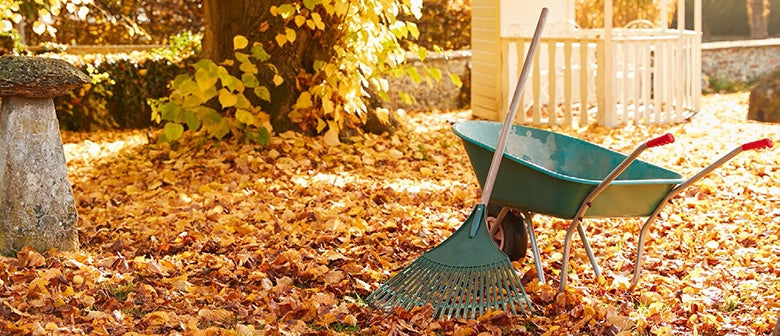Your Autumn Garden Tasks
Autumn is considered as nature’s planting time as the ground is still warm and the first of the rain helps new plants, trees and lawns get established. There are quite a few autumn garden tasks you can undertake, if you’re looking for ideas on what to do, we have your list below:
Mulch
Adding mulch to your garden helps to stop temperature and moisture fluctuations that can stress your plants out. Mulching can help conserve moisture in your garden and keep it warm over winter. Autumn is a good time to mulch as the ground is still warm.
Flower Gardens
Summer flowering annuals are nearing the end of their flowering season. Autumn is a good time to remove old plants and to start your preparation for your winter displays. Plant winter flowering annuals such as alyssum, calendula, cineraria, cornflower, lobelia, nemesia, pansy, primula, snapdragon and stock. Winter flowering annuals are an excellent means of brightening up dull parts of the garden, either planted in containers or especially in rose gardens where planted roses appear very bare.
Lawn
When autumn rains arrive in your region, the renovation of existing lawns or the laying of new lawns can begin. When preparing your site for a new lawn, it’s advisable to have a slight slope to allow water to run off, thereby avoiding puddling. A handy tip is to sow a mixture of grass seed as this provides a better all-year-round lawn. Autumn is the ideal time to sow or repair your new lawn so it can establish itself over the winter months.
Plant bulbs
The end of summer/ start of autumn is bulb season! Planting bulbs in autumn allows their flowers to germinate from the soil at the right time in spring to delight you with their blaze of colour. Spring bulbs come in an array of colours. There are all sorts of varieties to choose from including daffodils, tulips, freesias and hyacinths. Planting bulbs is easy, make sure you plant your bulb in well drained soil at the correct depth for it’s size (roughly twice the height of the bulb).
Fruit trees
The last of the peaches, golden queen mature in March. Numerous apple and pear varieties are now ripening and eating grapes are now at their sweetest. Cover with netting if birds are a problem. In warmer parts of New Zealand passionfruit will be ripening, harvest as they ripen on the vine or collect fallen fruit.
Peach and nectarine trees that have already produced fruit for the season can now be pruned, remove old wood but make sure that you retain enough new seasons’ growth for next season’s fruit. It’s always a good idea to maintain tree height at two to three metres to allow for easier picking and for netting if birds become a problem next season.
Compost
Unless you have evergreens everywhere, autumn brings with it a raft of gorgeous coloured leaves. We recommend raking these up and using them for your compost heap. Pull out any herbs and vegetables that have finished producing and add them to your compost bin, for the generation of rich mulch and matter to use on your garden later. Composting is a traditional method of recycling waste. Any organic material – kitchen scraps, plant material, lawn clippings, weeds, seaweed, wood ashes, straw and animal manure – can be used. The process involves soil micro-organisms breaking down the waste into a nice, sweet smelling crumbly “soil”.

